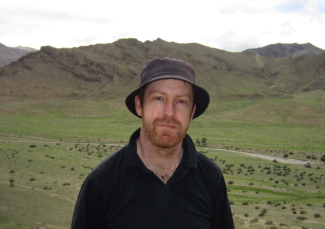Event

The discussion of the place of Islam in the Qing Empire has largely been carried on without confronting the question of what “Islam” meant to the Qing – a non-European, non-confessional empire, without an “Orientalist” tradition. This talk will begin by looking at the earliest descriptions of Inner Asian Islam available to the Qing court, before turning to a case study of rain magic in the Qing incorporation of Xinjiang, or East Turkistan. Practiced in both Inner Asia and imperial China, rain magic is a phenomenon well-known to scholarship, but one rarely situated in its wider political context. It offers an avenue to thinking both about the colonial encounter in Xinjiang, and about interconnections among the “constituencies” of Qing rule, particularly the interface between the empire’s Muslims and Mongols.
David Brophy is Adjunct Assistant Professor at Columbia University. Dr. Brophy studies the social and political history of China’s northwest, particularly Xinjiang, and its connections with the Islamic and Russian/Soviet worlds. After finishing his Ph.D. at Harvard University in 2011 he spent two years as a postdoctoral fellow at the Australian Centre on China in the World, at the Australian National University. His current book manuscript is on the politics of Uyghur nationalism between Xinjiang and the Soviet Union in the early twentieth century. Most of his new research engages with the Manchu-language archive on Qing China’s eighteenth-century expansion.
Co-sponosred between CEAS Humanities Colloquium Series and the Department of East Asian Languages and Civilizations